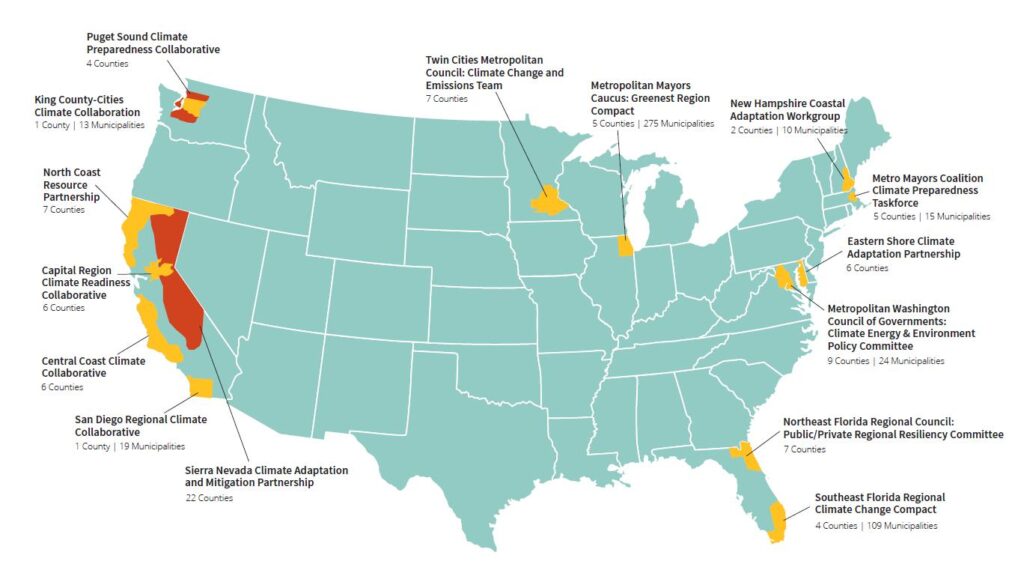
Learning from National Regional Climate Collaboratives – Thank you to our Jan 7 RCC Retreat panelists for sharing ways we can strengthen our MN Ecosystem supporting city implementation
Green Umbrella – (Cincinnati Region) Savannah Sullivan,
Bay Area Climate Adaptation Collaborative – Michael McCormick, AICP, Farallon Institute
Greenest Region Collaborative – Chicago Region – Edith Makra
Southeast Florida Regional Climate Change Compact Daniel Dickerson Institute for Sustainable Communities
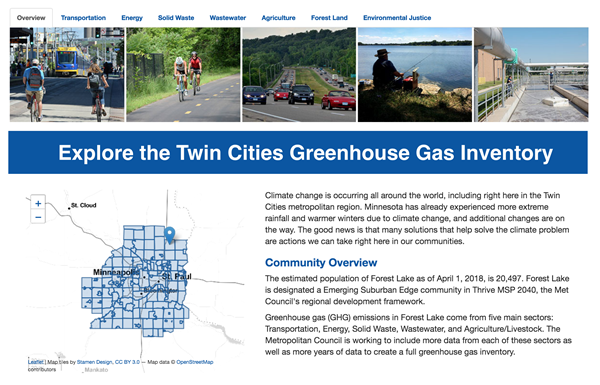
Resilient Cities and Communities is building and sustaining a powerful, peer-learning network of citizen and commission volunteers, city staff and elected leaders active with 50+ metro cities supporting their cities and counties to work together to implement high impact policies and projects to equitably achieve city, county, metro and state climate goals on time.
This will enable cities, counties, the Met Council and nonprofit and University partners to form an effective Regional Climate Collaborative for joint production of equitable climate policies/projects to meet city and county climate goals on time. (Kresge funded ISC national study of 15 RCCs)
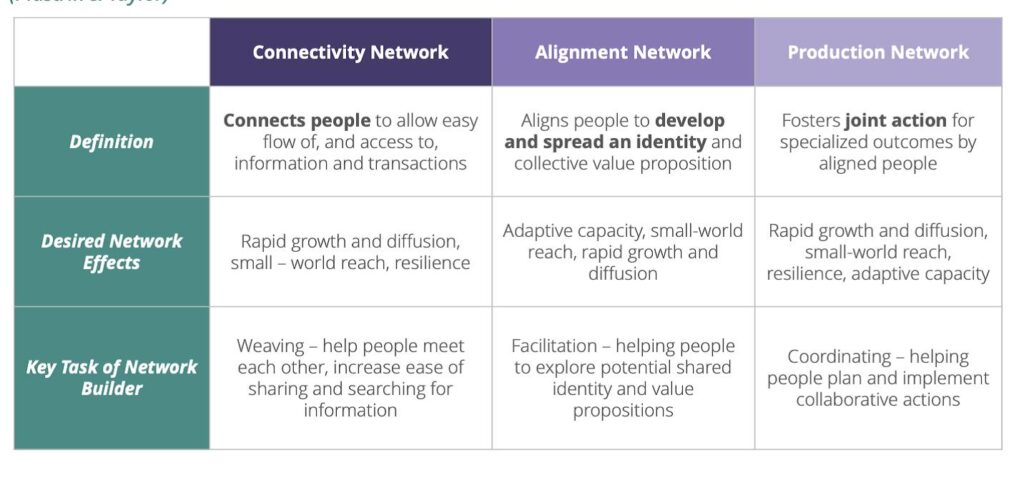
While RCCs may be doing connected and aligned work for different activities effectively, the overall outcomes of regional climate collaboration are best reached through joint production.
Regional Climate Collaboratives as Networks (p. 15.) Reference: Plastrik, Peter, and Madeleine Taylor. 2006. “Net Gains: A Handbook for Network Builders Seeking Social Change.”
Examples of Successful Regional Climate Collaboratives
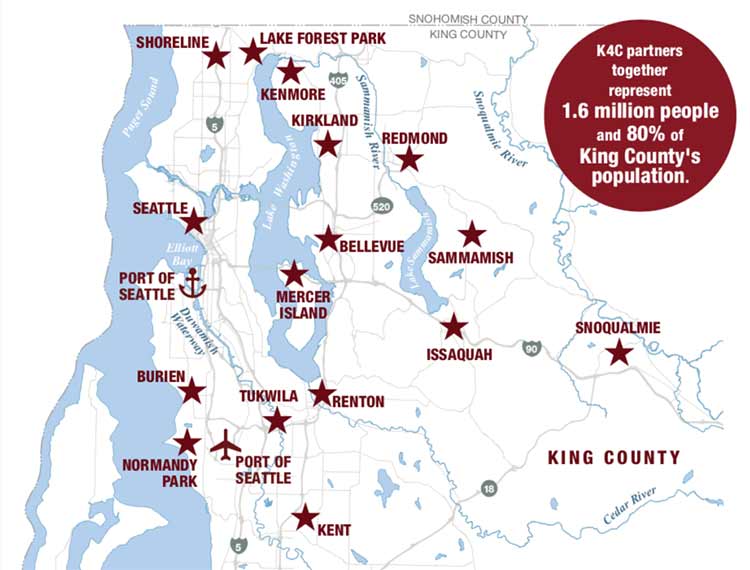
- King County-Cities Climate Collaboration
- King County and seventeen partners — Bellevue, Burien, Issaquah, Kenmore, Kent, Kirkland, Lake Forest Park, Mercer Island, Normandy Park, Port of Seattle, Redmond, Renton, Sammamish, Seattle, Shoreline, Snoqualmie, and Tukwila — are collaborating through the to coordinate and enhance the effectiveness of local government climate and sustainability action.
Climate Energy & Environment Policy Committee (CEEPC) is managing implementation of their regional climate action plan in partnerships with the regions cities to meet regional greenhouse gas reduction goals adopted by the board.
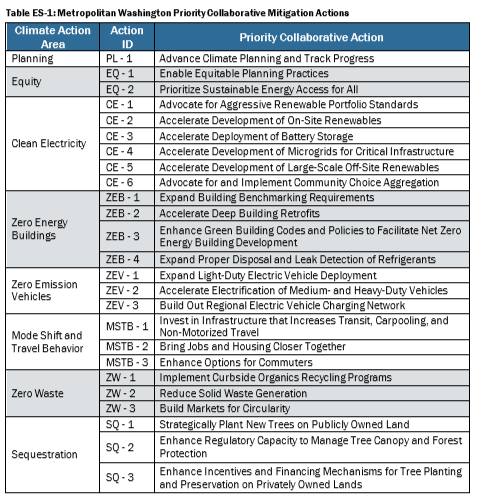
Metropolitan Washington Council of Governments
COG’s Climate and Energy Program is one of the nation’s first initiatives to address heat-trapping emissions on a regional level. The program provides a roadmap, tools, and resources to communities seeking more sustainable options for growth and development—including in the areas of energy efficiency, renewable energy, energy infrastructure, clean vehicle projects and initiatives, resiliency, and more.
The centerpiece of this work, the Metropolitan Washington 2030 Climate and Energy Action Plan developed by COG’s Climate, Energy, and Environment Policy Committee, outlines collaborative actions the region should take to meet its shared climate mitigation and resiliency goals, including a 50 percent reduction in emissions below 2005 levels by 2030.
National Studies on Regional-Wide Climate Action
